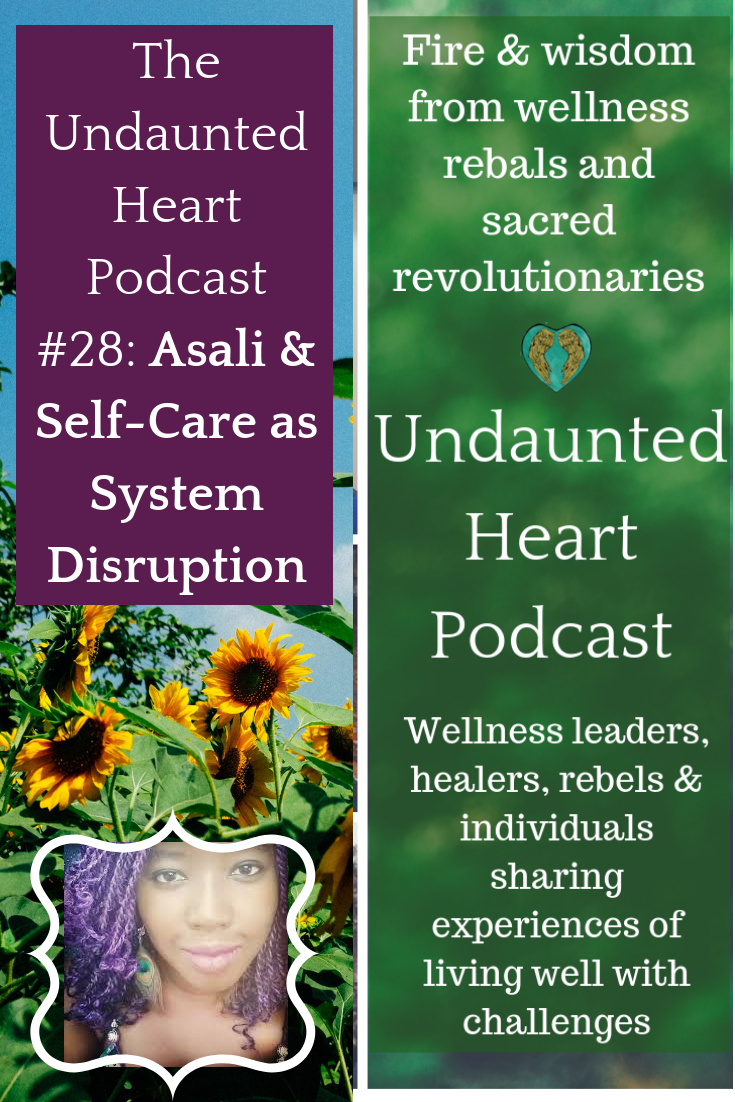
Dear Grace Q & A: How do I cope with tough conversations at festive events?
Dear Grace Q & A: How do I cope with difficult people in my life, during festive times?
Like relations at family events who ask invasive questions about my health/weight/relationships.
Or colleagues at the office party where there are social expectations to socialise in a certain, ablest, neurotypical way.
Or when people start getting drunk and someone says something ablest and all the non-disabled people just look away from me (the only disabled person in the room).
I’m dreading it, help!
Dear Dreading-It,
Thank you for being brave enough to share your question in this column, I am sure you are not alone in dreading the holiday season when it can contain so many micro-aggressions and distressing experiences.
What I notice about the examples you give in your question, is that they all seem to involve boundaries, invasiveness, and expectations, and your distress is kept invisible. Other people’s comfort – often the comfort of the majority in the room – is being prioritised over your needs.
I’m wondering how that strikes you and if that feels true for you. If so, does it seem familiar from other situations? Does it bring up any memories?
If any of the memories feel too much, you can dip into the techniques described here.
Expecting difficulties
I notice that in your question, you use the phrase ‘difficult people’. Are these people who you often struggle with? And is the issue that you are required to spend more time around them during the festive season?
Or is it that these are people you normally get along with well or just fine, but that in the festive season they somewhat shift gears – perhaps out of a professional colleague relationship into something closer to a friendly intimacy – and their behaviour at that level is inappropriate, verbally abusive couched as ‘interest’ or uncomfortable?
I ask because the answer will shape our response.
If the people are always difficult, then I imagine you may have tried to speak to them their behaviour on a number of occasions. Or, maybe you haven’t felt able to do that, which suggests you don’t experience them as approachable and open to listening and responding. You should absolutely be able to tell people to mind their own business and stop. Full stop. But I am guessing you wouldn’t be asking this question if that felt like an available option…
In that case, are we just trying to get through the festive season without them hurting you?
I absolutely agree that you shouldn’t have to put up with this, and taking it up with your line manager, union rep, solicitor or advocate may be absolutely what you need to do. But I am assuming that a) these events are soon and b) you don’t feel abused by these people, but rather insulted and fed up.
(Because there is no excuse for abuse, once is too much and you are under no obligation to attend any event where you anticipate experiencing racial, size, sexual, emotional, verbal abuse or any abuse of any kind).
Having said that, if it’s more of an imminent ‘awkward and upsetting conversation’ kind of thing, let’s think about what we can do…
Difficult People Diving
If there are difficult people, can you avoid them? Can you attend the event with an ally who can help support you? They could engage you in conversation, come and cut in if a difficult person engages you in conversation or help change the subject if you are getting uncomfortable.
Otherwise, it can be useful to prepare:
1. A mini-list of topics the difficult person LOVES to talk about (or most likely bore on about for far too long) to introduce as a distraction if you are caught in conversation with them.
2. A stock answer for any awkward or invasive questions you don’t want to answer.
CW: examples of sexist, hetero-normative, and fatphobic comments are below.
For example:
Difficult Person: “So, when are you going to start having babies then? You’d better get yourself a man quickly, eh?”
You: “Talking bodies and bits is so boring at a party, let’s not talk about all that here. I want to hear about you and your gardening!”
Difficult Person: Oh, that’s a lot of potatoes you are eating. Are you sure you want so many, you are looking a bit chubby there, dear? Is that one of your new year’s resolutions? That dress would look better if you lost a few pounds.
You: Isn’t the dress smashing? I got it at [NAME] store. I thought of getting [OTHER] dress, but it was green and lime green just isn’t very Christmassy, is it? I love your Christmas jumper though, very festive. Where did you get it? Or is it handmade?
CW ended.
Determinedly answering the piece of the question you want to speak to can help you get out of a tricky and trying conversation. As can naming the topics as boring, un-festive or inappropriate for the venue.
Party Like Me
Parties can happen in all sorts of ways. We can attend a party and settle in one spot, letting people come and sit near us if they want to socialise. We can come for 20 minutes in the beginning and leave before it gets too busy and overwhelming. We can suggest the party is in a space that allows us to lip read or doesn’t have so much background noise, so we can hear what people are saying to us.
It can be useful to notice the expectations of what makes a party. And to notice what we need in terms of accessible spaces.
A party is a celebration and socialisation. It doesn’t have to involve food, alcohol, dancing, games, late nights, karaoke or expensive purchases. It can involve any or all of those things. Some of these elements might be things you love, some might be challenging or inaccessible for you.
Can you think what the ‘purpose’ of the party is? If it’s a work party – is the purpose team building, bonding, de-briefing, restoration or enjoyment? If you have identified what you think is happening, how can you best engage in that?
You might do best in team building exercises if you attend in your wheelchair rather than struggling to move around a large room between groups or people with crutches or sticks.
Bonding might happen effectively by getting ready with colleagues at the office and then staying at the party itself for only a short time.
Reflecting on what’s needed and how you can best meet it might be the way forward in celebrations in inaccessible spaces.
There is the issue of expectations and that may be something to consider mentioning to your supervisor. Or if there are ablest issues in the office, call in the necessary support to deal with that – like a solicitor or union rep – or with the fallout of that, like a mediator or therapist to support you.
What you’ve described in terms of the racist comment at a party is so unjust and hurtful. I am so sorry you’ve been forced to experience that discrimination, prejudice, and relational trauma. Especially in being ignored by your colleagues silently condoning the behaviour.
Whatever feels safest and best for you to do in that situation is the way to go.
When I experienced this, I found it safest to shut the behaviour down by asking a question.
Rude person: [Makes ableist/racist/sexist or inappropriate comment].
Me: Excuse me, I don’t understand, can you explain what you mean by _____?
For example, many years ago (I’d handle it differently today) the wife of a friend of mine came to visit me, I’ll call her Joanna (all names and identifying details in this example have been changed). I didn’t know Joanna well, she had brought her new baby to meet me.
While visiting, she asked about a mutual friend of ours, Lyla, who had just started her own reflexology business. I replied happily that Lyla was doing very well and the corporate company who had hired her were very happy with her treatments for their staff. Her work was so effective that her clients were booking additional private sessions with her.
Joanna laughed and made a joke, insinuating that perhaps the clients were paying Lyla for sex work, not additional reflexology sessions. While I understood her inference, I didn’t find it funny. I found it offensive – to women, to Lyla and her business, to sex workers and on a macro level as Joanna was a middle-class, white, stay-at-home mother. And Lyla was a single mother of colour who had recently come out of homelessness. I didn’t find the idea of Lyla needing to undertake sex work to pay for living expenses for herself and her new child amusing.
At the time, I addressed this by asking Joanna to explain her comment. She blushed and giggled and wouldn’t. She looked around the room and addressed a comment to my carer, stating ‘they knew what she was talking about’. My carer gave her a blank look and said they had no idea what she was talking about.
Joanna was stuck, she could either explain her comment, exposing its nastiness, or realise she didn’t have our support and retreat. She retreated. I spoke about my support and love for Lyla and how wonderful her work is. Joanna didn’t come to visit again, funnily enough. And unsurprisingly, I didn’t want her to.
In this example, in not buying into the joke, I stopped it from continuing. I also had connections and community with my carer, so I wasn’t alone in that interaction. It can be useful to say things like…
“I am sure I am not the only one who thinks…”
“Many of the women here will, I believe, support me in…”
“I don’t know how to respond to that comment. [Turn to an ally and change subject].”
“As I know, we in this organisation believe…”
…to tip people off and cue them to back you up.
What’s most important here is taking care of you in a way that feels accessible and sustainable. I wish you luck, love and as good festive times as possible.
How do you cope with festive challenges? Let me know in the comments!
P.S. Did you find this useful? Want me to answer YOUR question? I’d love to! You can:
- Work with me one-on-one in Trailblazing Wellness Coaching.
- Submit a question to the Dear Grace Q & A column via grace AT gracequantock.com and I may be able to answer it here on the blog.






